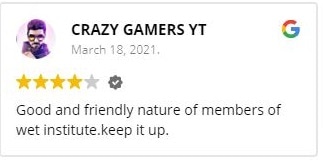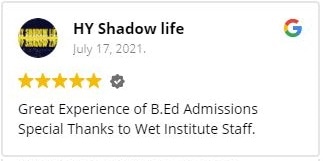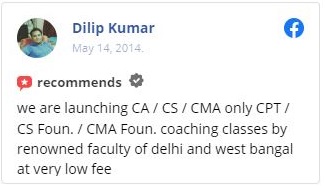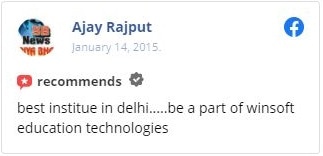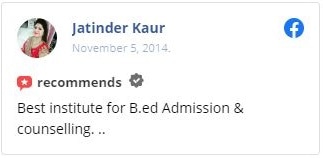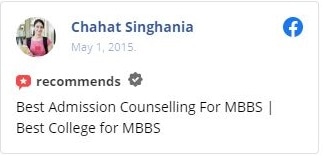Cardiac Care Technician (CCT) Course Admission Process from Indian Top Universities and Colleges: Eligibility Criteria, Scope, Duration, Fees, Syllabus, and Career Opportunities
Cardiac Care Technology (CCT) Course: Overview
The Cardiac Care Technology (CCT) course is a specialized program designed to equip students with the skills and knowledge necessary to work in the field of cardiac healthcare. With the rising incidence of cardiovascular diseases, there is a growing demand for trained professionals who can assist in diagnosing, treating, and managing heart-related conditions.
Curriculum
The CCT course typically covers a range of topics, including:
- Cardiac Anatomy and Physiology: Understanding the structure and function of the heart and circulatory system.
- Diagnostic Procedures: Training in various diagnostic techniques, such as ECG (electrocardiogram), echocardiography, and stress testing.
- Clinical Management: Learning about the management of cardiac patients, including medication protocols and lifestyle modifications.
- Interventional Procedures: Exposure to techniques such as angioplasty and stenting, along with the equipment used in these procedures.
- Patient Care: Emphasis on providing comprehensive care to patients, including monitoring vital signs and assisting in rehabilitation.
Practical Training
Hands-on experience is a crucial component of the CCT course. Students typically engage in clinical rotations in hospitals or cardiac care units, allowing them to apply theoretical knowledge in real-world settings. This practical exposure helps build confidence and competence in managing cardiac patients.
Career Opportunities
Graduates of the CCT course can pursue various career paths, including:
- Cardiac Technologist: Assisting cardiologists in diagnostic tests and procedures.
- Electrophysiology Technician: Specializing in monitoring and treating heart rhythm disorders.
- Cardiac Rehabilitation Specialist: Guiding patients in recovery programs post-heart surgery or intervention.
- Healthcare Educator: Teaching patients and communities about heart health and disease prevention.
Eligibility Criteria for Cardiac Care Technician (CCT) Courses
The eligibility criteria for pursuing a Cardiac Care Technician (CCT) course can vary depending on the institution offering the program. However, the following are common requirements that candidates generally need to meet:
Educational Qualification:
- Candidates should have completed their 10+2 education (or equivalent) with a focus on the science stream, including subjects like physics, chemistry, and biology.
- Some institutions may also accept students with a diploma or degree in nursing, allied health sciences, or paramedics.
Minimum Percentage:
- A minimum aggregate percentage, often around 50%, in the qualifying examination may be required. Specific percentage requirements can vary between institutions.
- A minimum aggregate percentage, often around 50%, in the qualifying examination may be required. Specific percentage requirements can vary between institutions.
Age Limit:
- Many programs prefer candidates aged between 17 and 25 years at the time of admission, though this may differ based on institutional policies.
- Many programs prefer candidates aged between 17 and 25 years at the time of admission, though this may differ based on institutional policies.
Entrance Examination:
- Some institutions may conduct an entrance exam to assess candidates’ aptitude and knowledge in relevant subjects. This could include written tests followed by interviews.
- Some institutions may conduct an entrance exam to assess candidates’ aptitude and knowledge in relevant subjects. This could include written tests followed by interviews.
Medical Fitness:
- A medical fitness certificate may be required to ensure that candidates are physically and mentally fit for the demands of the course and the profession.
- A medical fitness certificate may be required to ensure that candidates are physically and mentally fit for the demands of the course and the profession.
Personal Attributes:
- While not formal criteria, qualities such as good communication skills, attention to detail, and the ability to work in high-pressure environments are essential for success in this field.
Admission Process for Cardiac Care Technology (CCT) Courses
The admission process for Cardiac Care Technology (CCT) courses typically involves several steps designed to evaluate candidates and ensure they meet the program’s requirements.
Research and Selection:
- Start by researching various institutions that offer CCT courses. Review their curriculum, faculty, facilities, and reputation to find the best fit for your goals.
- Start by researching various institutions that offer CCT courses. Review their curriculum, faculty, facilities, and reputation to find the best fit for your goals.
Application Form:
- Obtain the application form from the institution’s website or admission office. This can often be completed online or in person.
- Obtain the application form from the institution’s website or admission office. This can often be completed online or in person.
Filling Out the Application:
- Fill out the application form with accurate personal and academic details. Be sure to include any relevant qualifications or experience in the healthcare field.
- Fill out the application form with accurate personal and academic details. Be sure to include any relevant qualifications or experience in the healthcare field.
Document Submission:
- Prepare and submit required documents, which may include:
- Academic transcripts (10th and 12th grade)
- Medical fitness certificate
- Identity proof (such as an Aadhar card or passport)
- Passport-sized photographs
- Prepare and submit required documents, which may include:
Entrance Examination:
- If required, appear for an entrance exam. This may test knowledge in subjects like biology, chemistry, and general aptitude. Some institutions may also conduct an interview as part of the assessment process.
- If required, appear for an entrance exam. This may test knowledge in subjects like biology, chemistry, and general aptitude. Some institutions may also conduct an interview as part of the assessment process.
Merit List:
- After evaluating entrance exam results and interviews, institutions usually compile a merit list of selected candidates. This list is typically published on the institution’s website or communicated directly to candidates.
- After evaluating entrance exam results and interviews, institutions usually compile a merit list of selected candidates. This list is typically published on the institution’s website or communicated directly to candidates.
Document Verification:
- Shortlisted candidates must undergo document verification, where original documents are checked against submitted copies.
- Shortlisted candidates must undergo document verification, where original documents are checked against submitted copies.
Fee Payment:
- Once verified, candidates will be required to pay the admission fee to secure their seat in the program. Payment methods and deadlines will be specified by the institution.
Fees and Duration for Cardiac Care Technician (CCT) Course
The Cardiac Care Technician (CCT) course is designed to provide comprehensive training in cardiac care.
Cardiac Care Technician (CCT) course: Duration
- Course Length: The CCT course generally spans 1 to 2 years, depending on the institution and the specific curriculum structure. Some programs may offer a diploma that typically lasts about 1 year, while others may provide an advanced diploma or degree program that can take up to 2 years to complete.
Cardiac Care Technician (CCT) course: Fees
- Tuition Fees: The fees for the CCT course can vary significantly based on the institution, location, and facilities offered. Typically, the tuition fees range from ₹30,000 to ₹1,50,000 per year.
- Additional Costs: Besides tuition, students should also consider other expenses such as:
- Registration Fees: A one-time fee at the time of admission.
- Laboratory Fees: Charges for practical training and use of equipment.
- Study Materials: Costs for textbooks, reference materials, and other resources.
- Uniform and Equipment: If applicable, costs related to uniforms or personal protective equipment.
- Examination Fees: Charges for semester or final examinations.
Scope and Career Opportunities for Cardiac Care Technician (CCT) Course
Cardiac Care Technician (CCT) course: Scope
Growing Demand:
- With the increasing prevalence of cardiovascular diseases, there is a significant need for trained cardiac care professionals. This trend is expected to continue, offering job stability and growth opportunities.
- With the increasing prevalence of cardiovascular diseases, there is a significant need for trained cardiac care professionals. This trend is expected to continue, offering job stability and growth opportunities.
Technological Advancements:
- The field of cardiology is evolving with advancements in technology, including new diagnostic tools and treatment methods. CCT graduates will be equipped to work with state-of-the-art equipment, enhancing their skills and career prospects.
- The field of cardiology is evolving with advancements in technology, including new diagnostic tools and treatment methods. CCT graduates will be equipped to work with state-of-the-art equipment, enhancing their skills and career prospects.
Diverse Work Environments:
- Cardiovascular care technicians can work in a variety of settings, including hospitals, outpatient clinics, cardiac rehabilitation centers, and research institutions. This diversity allows for a dynamic career with various job roles.
- Cardiovascular care technicians can work in a variety of settings, including hospitals, outpatient clinics, cardiac rehabilitation centers, and research institutions. This diversity allows for a dynamic career with various job roles.
Interdisciplinary Collaboration:
- Working closely with cardiologists, nurses, and other healthcare professionals, CCT graduates play a crucial role in patient management, providing them with opportunities for collaborative work and professional growth.
- Working closely with cardiologists, nurses, and other healthcare professionals, CCT graduates play a crucial role in patient management, providing them with opportunities for collaborative work and professional growth.
Cardiac Care Technician (CCT) course: Career Opportunities
Cardiac Technologist:
- Assisting cardiologists in performing diagnostic tests such as echocardiograms, ECGs, and stress tests.
- Assisting cardiologists in performing diagnostic tests such as echocardiograms, ECGs, and stress tests.
Electrophysiology Technician:
- Specializing in monitoring and managing heart rhythm disorders, including procedures like catheter ablation.
- Specializing in monitoring and managing heart rhythm disorders, including procedures like catheter ablation.
Cardiac Rehabilitation Specialist:
- Guiding patients in their recovery process post-heart surgery or intervention, focusing on lifestyle modifications and exercise regimens.
- Guiding patients in their recovery process post-heart surgery or intervention, focusing on lifestyle modifications and exercise regimens.
Clinical Research Associate:
- Engaging in research activities related to cardiac health, contributing to the development of new treatments and technologies.
- Engaging in research activities related to cardiac health, contributing to the development of new treatments and technologies.
Healthcare Educator:
- Educating patients and communities about heart health, disease prevention, and healthy lifestyle choices.
- Educating patients and communities about heart health, disease prevention, and healthy lifestyle choices.
Medical Equipment Sales and Support:
- Working with companies that provide cardiac diagnostic and therapeutic equipment, offering training and support to healthcare professionals.

